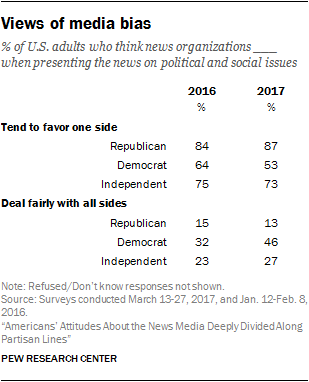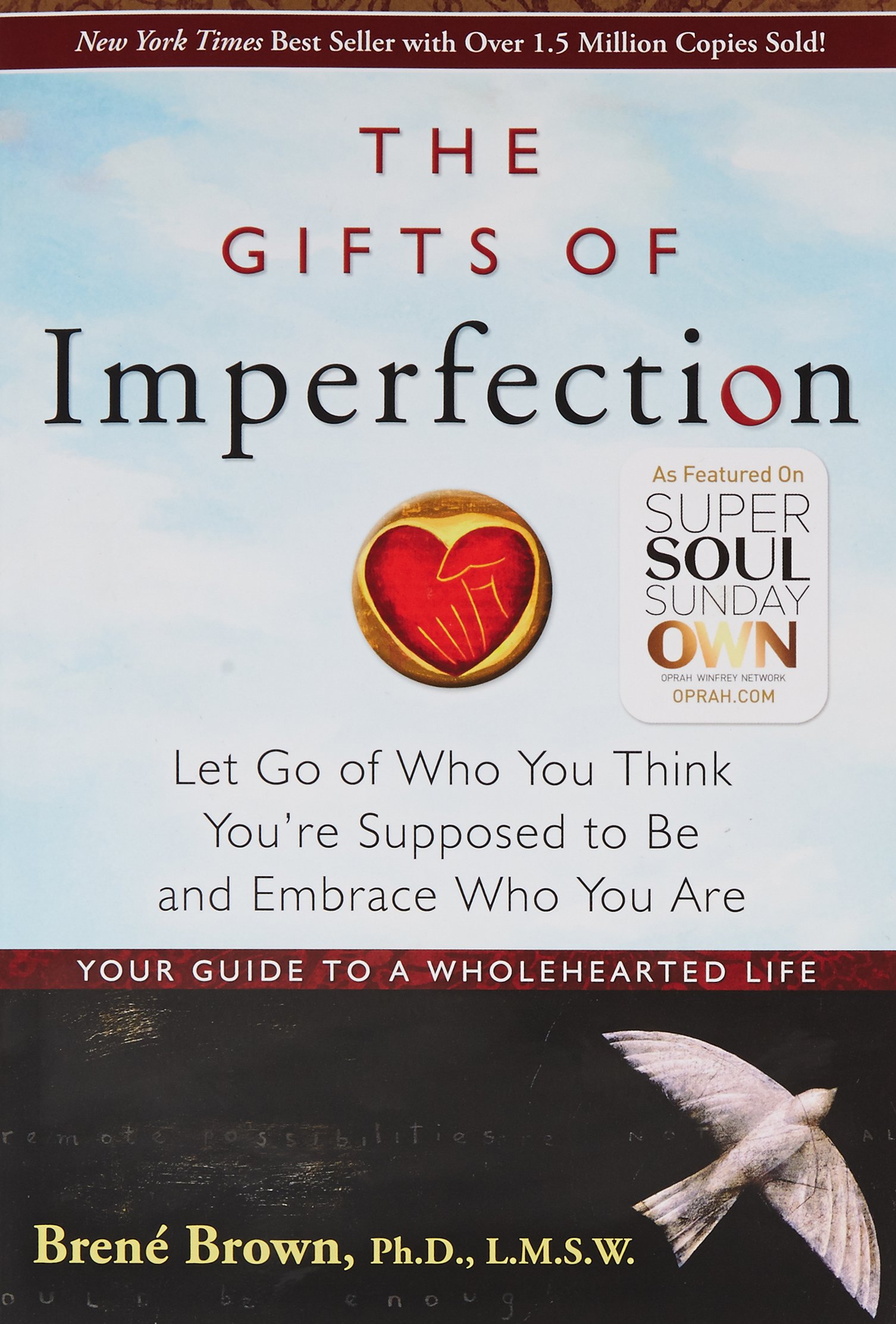Being a journalist today is harder than ever. Attacked from all sides by the politicians and feeling the economic burden of a usually struggling media we work in, it is very challenging to keep a clear head and do our jobs, objectively and free of bias. In a study conducted in May 2017. Pew Research Center shows that an overwhelmingly majority of Americans think that Media tends to favor one side.
That leads to a bigger problem. Distrust. The public doesn’t trust the traditional source of information any more and are more keen to rely on their “own” sources, twitter posts by their candidates or news that has been suggested to them on social media upon their political preference. Doing this, the public doesn’t even realize that they are diving into a deeper and deeper circle of biased news. As you may notice in a research shown above, Republicans have a much stronger view on biased media. In America it is widely shown. The Trump administration brought this subject into spotlight calling some of the most influential outlets such as the New York Times and CNN fake news and suggesting that journalist don`t do their jobs well. But, as suggested in the video below, everyone is affected.
https://videos.vidible.tv/prod/2017-05/22/5923342fe0fa174114ed3ef9_640x360_v1.mp4?wnLfSePFFMbiEIHODP2wSIslQFt62nqXL6rrqgVFC8K57XP47pS0BB274U4j0rlb
So what do we do? Be smart, check the facts more than once and always remember the five ethical codes of journalism: Truth and Accuracy, Independence, Fairness and Impartiality, Humanity and Accountability
And at the end, don`t underestimate your colleague from a different news outlet. It might just be that you are just telling different parts of the same story.


